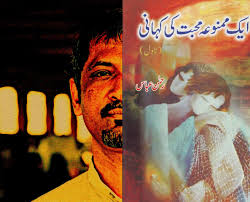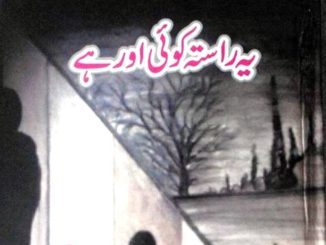
An illicit love story, A novel by Rahman Abbas
by, Yogini Dhamaskar
An illicit Love Story (Ek Mamnua Muhabbat ki Kahani) is the second novel of celebrated Urdu Novelist Rahman Abbas, published in 2009. The book was an immediate success in Urdu speaking world, and the readers, writers, and critics poured their reactions about the heart-touching, intrepid and melancholic love between a 15-year-old boy Abdul Aziz and a married woman Sakina.
The story is set in a remote village of Kokan, i.e., the western coastline of India, a village not yet connected with the modern world and immersed in the magic of its own culture and dialect. The period of the story is seemingly 1960-1992.
Ek Mamnua Muhabbat ki Kahani is a simple yet complex love story; its uniqueness lies in its power to describe the feelings and emotions of characters, milieu, quietude, serendipity. There is no doubt that the story of an illicit love is the best love story written by any Urdu writer in the last two decades in the Urdu fiction.
Former President of the Sahitya Akademi, India’s National Academy of Letters, Gopi Chand Narang has said during a seminar titled Urdu Novel on the Threshold of 21st Century that in this novel the author has woven two love stories artistically, the inter-texuality is rich with several layers.
On the other hand, well-known fiction writer Sajid Rashid has said that in his view this is a major love story, beautifully written; it also poses serious questions about the time we are living in.

The novel begins under a starry night with the description of a marriage ceremony in the house of the protagonist, Abdul Aziz at a time when electricity had not reached the village. A few people had access to radio and many were unaware where Bombay was situated, or that countries like America and China even existed. The village is surrounded by the forest and boundaries of the forest merge into the Arabian Sea.
However, the villagers knew the names of the wild animals, snakes, insects, flowers, seasons, and emotions in their native dialect, kokani. Their cultural life, rituals, and ceremonies are different, but now these are on the verge of extinction.
Sakina is the wife of a rich landlord; she has been married for many years, but hadn’t conceived, and hence every menstrual cycle was a cause of sadness to her fragile heart.
Meanwhile, Abdul Aziz had just entered adolescence and was exploring changes in his sexuality and emotions. That starry night when the novel begins, Aziz had done a lot of things in his uncle’s wedding ceremony and had fallen asleep in a room where later Sakina went to rest.
She knew Abdul Aziz for years, as a child, as a student, and as a village boy, so there was no hesitation to sleep there, as it is common in the village. In the darkness of that room, her mind begins to think about how Aziz would look after a few years’ time.
She was tempted by his features and traces of manliness on his face and kept seeing him asleep. There were a lot of reveries in her heart; she was unable to love her husband, though he was a good and religious person. Sakina was a passionate girl some years ago and wanted to explore the world and marry any of the film-stars, cricketers, and bodybuilders whose pictures she had seen in the Marathi language newspapers and kept in her treasure box.
But, now, here, in this mysterious night, when insects were singing outside in the yellow light of the bright moon, came an incredible moment when a magnetic force pulls Sakina towards Abdul Aziz, their bodies mingling into each other.
Yusuf was born with a photographic memory and charismatic personality soon becomes an Islamic preacher who later tried to establish sharia-like norms in the village. On the other hand, Aziz had realised the importance of the composite culture and indigenous ways and turned a defender of his native culture.
Later, in the Novel, Yusuf’s religious dictum is countered by Aziz and one unfortunate day disciples of Yusuf killed him as they perceived him as an infidel or threat to religion.




